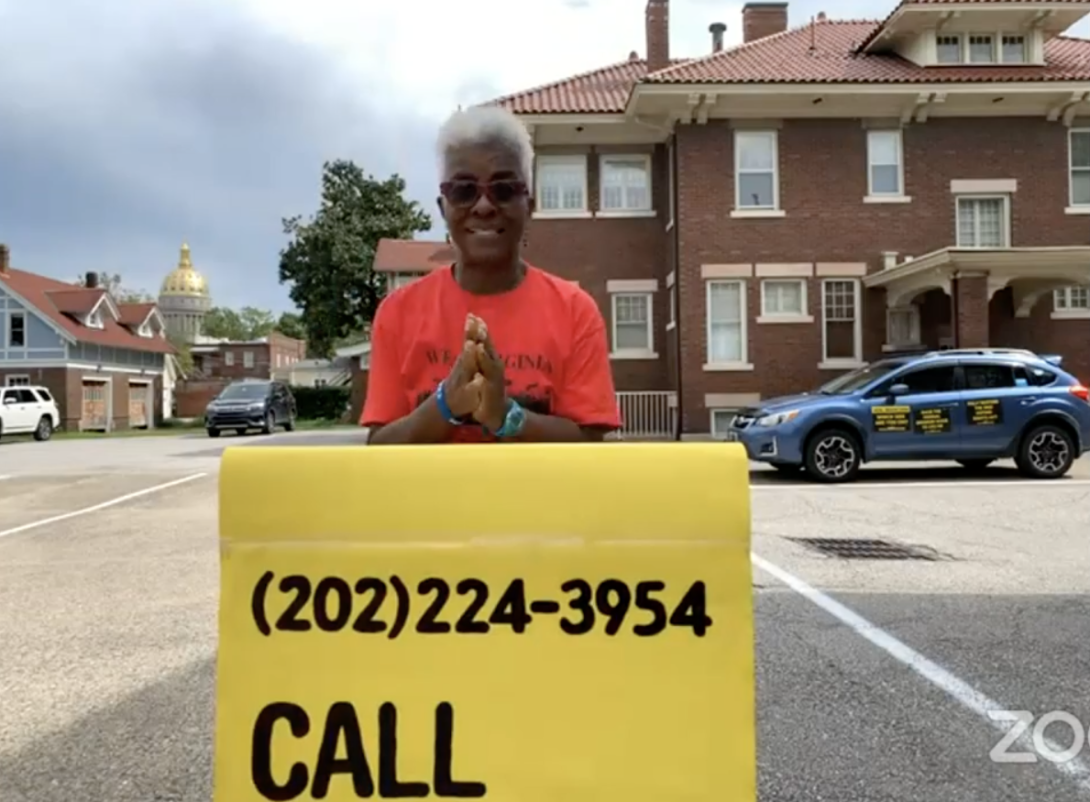A Senate fight is brewing over the Freedom to Vote Act — and the filibuster

Jean Evansmore of the West Virginia Poor People's Campaign spoke during a recent virtual press conference announcing new efforts to pressure U.S. Sen. Joe Manchin into ending the filibuster and supporting more protections for voting rights. (Image is a still from this video.)
After a series of protests over the summer involving civil rights leaders, low-wage workers, members of the clergy, and state lawmakers to demand federal voting protections, Senate Democrats recently introduced a new voting rights bill that would counter ongoing Republican efforts to restrict voting in states across the country.
The Freedom to Vote Act is a pared-down alternative to the For the People Act, a far-reaching bill to expand voting rights, curb the influence of money in politics, ban partisan gerrymandering, and create new ethics rules for federal officeholders. The new measure was crafted in response to concerns about the previous one expressed by Sen. Joe Manchin, a conservative Democrat from West Virginia. The House passed the For the People Act in March, but Republicans in the evenly divided Senate blocked it with a filibuster, which requires 60 votes to end debate on a bill and force a vote. So on Sept. 14, a group of key Democratic senators including Manchin and Raphael Warnock of Georgia introduced the compromise Freedom to Vote Act.
Its key provisions include making Election Day a public holiday, mandating that every state have automatic voter registration, and requiring at least 15 days of early voting for federal elections. It also cracks down on disseminating misinformation about elections, restores voting rights to formerly incarcerated people upon release from prison, bans partisan gerrymandering, and protects against unlawful voter purges.
"We've got some things done this year, but I believe if we don't pass voting rights, history will rightly judge us harshly," Sen. Warnock said in a Sept. 16 floor speech in support of the bill. "The folks who sent us here are counting on us. History is waiting on us. Our children are watching us."
A recent poll from ALG Research found that 72% of likely voters in 10 key battleground states including Florida, Georgia, and North Carolina support the provisions of the Freedom to Vote Act. That support crosses party lines, with 95% of Democrats, 71% of independents, and 55% of Republicans backing the policies contained in the bill.
However, the measure also has critics who don't think it goes far enough to protect voting rights and fair elections. For example, they note that the bill leaves out provisions that would automatically mail ballots to voters and establish public financing for congressional elections, and it would allow voter roll purges to continue. It also creates uniform standards for voter ID, which critics say plays into Republican efforts to exaggerate claims of voter fraud and implement stringent voter ID requirements, which have a disproportionately suppressive effect on African Americans, Latinos, women, and young people.
"There is language in this bill that seems to deem voter ID as essential to election integrity, election confidence, and election access," wrote Rev. William Barber*, co-chair of the Poor People's Campaign: A National Call for Moral Revival. "That language is codifying the Trump lie, it is codifying the insurrectionist lie. It may seem minor to many, but if you look at it carefully, that language needs to be amended out."
Earlier this month in North Carolina, a three-judge panel of the state Superior Court in Raleigh struck down Republican state lawmakers' latest attempt to impose photo ID requirements, ruling that the state's voter ID law discriminated against Black people. The decision referenced a 2015 report that showed hundreds of thousands of registered voters in North Carolina lacked the necessary forms of ID to vote under the law. Allison Riggs, the plaintiffs' lead attorney and co-executive director and chief counsel for voting rights at the Southern Coalition for Social Justice, said the ruling "reflects how the state's Republican-controlled legislature undeniably implemented this legislation to maintain its power by targeting voters of color."
The Freedom to Vote Act still faces the threat of the Senate filibuster, which has been a major roadblock for the Biden administration's agenda. Republican leaders who blocked the For the People Act with the filibuster have already stated that they will not support the Freedom to Vote Act, leaving its future uncertain.
If Republicans again use the filibuster to block debate on the bill, Democrats say they would be open to making changes to the policy. But some conservative Democrats in the Senate, including Manchin and Kyrsten Sinema of Arizona, have said they oppose filibuster reform.
So voting rights activists are now targeting Manchin. The Poor People's Campaign recently took out full-page newspaper ads in West Virginia calling on him to end his support of the filibuster and is urging constituents to contact him about it. The organization has also requested a meeting with President Biden to discuss what it calls a "moral reset" for the country including ending the Senate filibuster.
"We cannot allow the filibuster, which has been used to stall even a conversation about so much important legislation, to block the action that is so desperately needed in this moment," the campaign leaders wrote.
* Rev. Barber is the author's father.
Tags
Benjamin Barber
Benjamin Barber is the democracy program coordinator at the Institute for Southern Studies.
